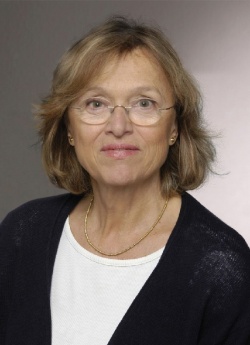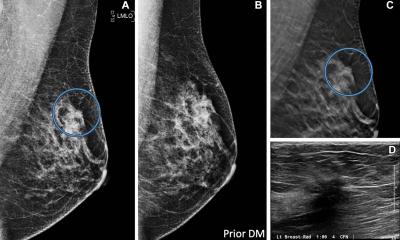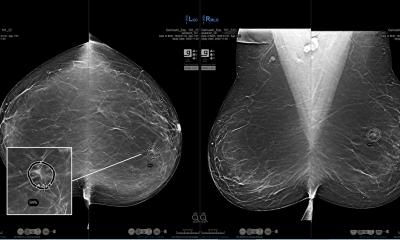The German Senology Congress 2010 - Celebrating 30 years of breast care
1-3 July, Hamburg, Germany
The German Senology Society has campaigned for women’s breast health for 30 years. Founded in 1980 on the then very novel concept of organ-related, interdisciplinary, scientific cooperation, today a large percentage of the society’s 1,800 members are gynaecologists, radiologists, surgeons and internists.

Senology is interdisciplinary, emphasised Congress President Professor Ingrid Schreer, radiologist and head of the Breast Centre at the University Women’s Hospital in Kiel. ‘Today’s breast centres prove the meaningfulness and necessity of this multidisciplinary concept, from diagnosis to treatment to aftercare, which has also been successfully adopted by other organ centres and disciplines.’
Thus, although focused specifically on breast cancer, the scientific programme contains a wide variety of topics, including radiodiagnostics. ‘Many imaging procedures are still at the research stage, but there have already been exciting developments and successes, which we will present at the congress. In particular, there have been many advances in the development of technologies specifically designed for the breast -- the rediscovery of scintigraphy is one. With the help of new gamma cameras the size of a mammography scanner, the breast is scanned and not the entire body. This has improved the technical quality of image recording so that this procedure now achieves 90% both for sensitivity and specificity. However, the problem of the high radiation dose associated with scintigraphy (ten times higher than those for mammography) remains.’
Prof. Schreer is particularly pleased that two renowned international speakers will participate in the Senology Congress. In his lecture headed Mammography Screening 2020? Professor Edward M Azavedo (Radiology Dept. Karolinska Hospital, Stockholm) will discuss the Swedish mammography screening programme, established in 1989 and is still considered an international leader. And, results from the evidence-based study Review of Preoperative Magnetic Resonance Imaging (MRI) in Breast Cancer in the context of a discussion forum titled Preoperative Breast MRI and preoperative Case Conference, will be presented by renowned epidemiologist Dr N Houssami, breast physician at the Royal Hospital for Women, Sydney, Australia.
Dr Houssami’s research on the current state of knowledge about the application of MRI for early detection of breast cancer links in with a current debate that caused a stir. In particular, the German media reported that, although MRI was the safest method for the diagnosis of breast cancer, it was never used in practice due to cost. This coverage caused considerable confusion among screening patients. ‘Houssami’s international data analysis shows, in an impressive way, that MRI can on no account replace mammography,’ Prof. Schreer pointed out. ‘MRI is only indicated for a very small number of patients at high risk, and these women are already receiving the appropriate care in the 12 centres for women with an increased hereditary risk of breast cancer and ovarian cancer.’
The session Breast Care Nurse: An assessment in a European Context – a first for the congress – will be presented under the guidance of Professor Bettina Borisch, President of the advisory committee on breast cancer at the Swiss Cancer League, and Dr Martin Steiner, regional head of the Professional Association of Gynaecologists in Baden Württemberg.
Since Great Britain introduced breast care nurses (BCNs) in the 1980s, this specialist role has been established all over Europe. However, BCNs undergo very different types of training and have different competencies in the various countries. The session will introduce the BCN programme at a European level and examine the feasibility of transferring it into the national health system. ‘The breast care nurse plays an essential part with regards to helping women diagnosed with the disease,’ Prof. Schreer explained. ‘They provide personal advice and support from the first diagnosis and communicate with the patient through the entire treatment process. This makes them highly specialised experts in care, which requires the respective, standardised training.’
Along with updating all primary treatment concepts, e.g. surgery, adjuvant and neo-adjuvant, representatives from politics and science will discuss political aspects of care and health with the audience, including the consistent implementation of the S-3 guidelines on the early detection of breast cancer and better handling of interval carcinomas in mammography screening.
More information: www.senologiekongress.de
21.05.2010





